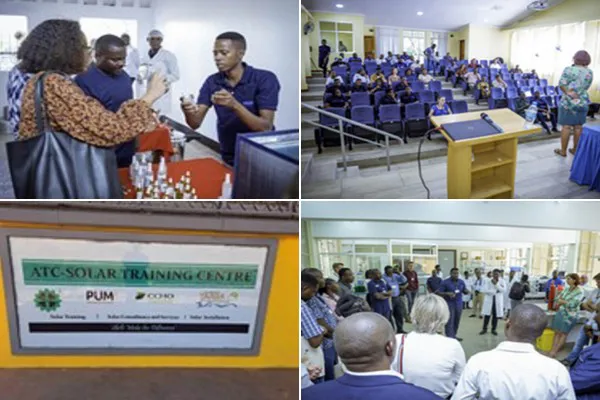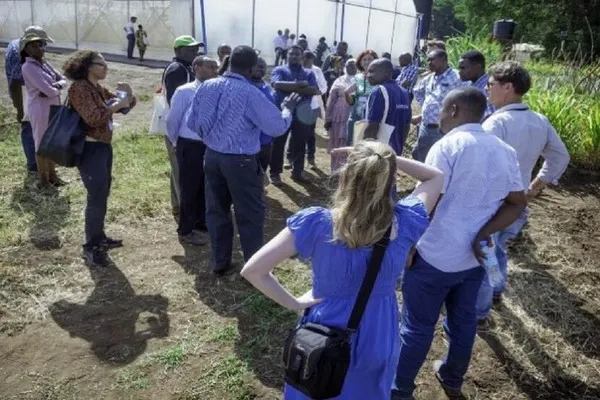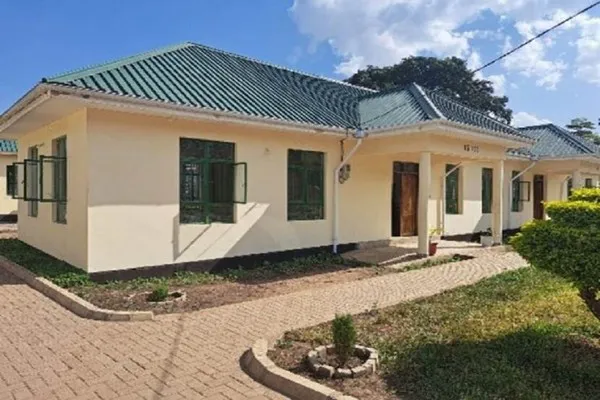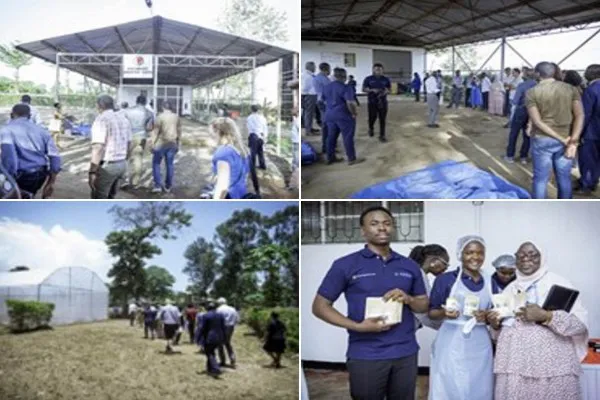Knowledge is the cornerstone of horticulture development in the Northern Circuit of Tanzania. With the right knowledge and skills taught in educational institutions, students can effectively learn to produce high crop yields, produce high-quality products, and increase their profits. Knowledge also enables one to adopt sustainable practices that conserve natural resources, protect the environment, and enhance the resilience of their farms to climate change. However, the potential of this sector is not fully realized due to a lack of knowledge and skills among stakeholders.
Hanze University has been working with Tanzania for many years now, collaborating with educational institutions and private companies. They have undertaken projects in water, renewable energy, media, entrepreneurship, and now in horticulture, working in partnership with the Netherlands Enterprises Agency (RVO) and some Dutch companies in the Northing circuit.

Hanze University's presence in Tanzania
Hanze University has created a network with seven Dutch-owned companies in the Northern Highlands between 2020 and 2022, namely, Rijk Zwaan, Seeds from East-West, Zaden, Enza, Chrysanten Dekker, Flowers by Bondeni, The Kiboberry, Agro/Profyta Green Valley to name a few. All organizations involved in this project, as well as the entire country, will benefit from the activities.
The Netherlands Enterprise Agency (RVO) helps entrepreneurs and organizations to invest, develop and expand their businesses and projects Both in the Netherlands and abroad. It is a government agency that is part of the Dutch Ministry of Economic Affairs and Climate Policy. RVO has so far supported 15 projects in Tanzania in diverse sectors, with Hanze University being one of the recent partnerships to enable this project to come to life.

Launch of the Hanze University knowledge-to-knowledge project
On March 9, 2023, representatives from Hanze University, the Netherlands Embassy, Netherlands Enterprise Agency (RVO), a number of Dutch companies, Horti-Tengeru, and ATC college witnessed the launch of this unique project from Hanze University, which aims at achieving; a professional network between TVET colleges, Dutch horticulture companies and Tanzanian expertise centers, improved skills of staff members and management teams of TVET colleges and the improved implementation of study programs for students and creation of high-quality graduates. This event was followed up by visits to the solar, water, and soil labs at ATC, a visit to Horti – Tengeru's open field and greenhouses, and finally, a visit to World Vegetable Center to learn more about their activities and their youth program called VIABLE.
A very practical approach will be taken by this new project to bring together the education sector and the private sector. To prepare students for a career in a rapidly changing business environment, representatives of the private sector will train students and teachers at TVET colleges, along with Hanze University training sessions.
This project is an attempt to bridge the gap between education and industry - students and staff from TVET colleges will be trained by private sector representatives as well as taught using innovative training tools prepared by Hanze University. A very practical approach will be taken to bring together the education sector and the private sector in this project. To prepare students for a career in a rapidly changing business environment, representatives of the private sector will train students and teachers at TVET colleges, along with Hanze University training sessions.
The project will benefit all related parties; Dutch companies can access better personnel, TVET staff will benefit from improved teaching skills and knowledge while students gain experience that would help them take part in a rapidly changing business environment.

It is important to mention that this current project builds up from another Netherlands-funded institutional collaboration project on "Strengthening skills and training capacity in the horticulture sector" from the Orange Knowledge Scholarships (OKP) program, a program that has been running since 2017. The K2K project which we are all here for today for the launch, will use the revised curriculum, technology, and trainers who benefited from this past project.
To give a little background, the lead institutions in the past collaborative project were Maastricht University from the Netherlands and the National Council for Technical and Vocational Education and Training (NACTVET). This project which has also come to an end recently, with funding of close to one million euros, has seen some great achievements. Apart from the curriculum revision and development, the project also resulted in; institutional capacity development at NACTE and 3 A-TVETs, entrepreneurship development, and the establishment of a triple helix horticulture innovation methodology.
Let's not forget that the project paid specific attention to the inclusion of women and disadvantaged groups, labor market relevance, and public-private partnerships (Tanzania-Dutch) as key elements of the project approach.
World Vegetable Center tour
Short introductions followed by a tour to see student activities from Viable and their products after the launch of the Hanze University knowledge-to-knowledge project at ATC. Viable is a youth-led agribusiness Enterprise at the World Vegetable Entre, where innovative agricultural ideas are commercialized.

Knowledge is a vital component of stimulating horticulture development in the Northern Circuit of Tanzania. This project will provide an avenue for the exchange of ideas and experiences among stakeholders in the sector. This pilot program's unique 'education-private sector integration model' will ensure sustainability as it has the potential to be replicated countrywide and even in other countries like Kenya and Uganda, where Dutch companies face similar issues of qualified personnel shortage.
To conclude, let us embrace knowledge and technology to unlock the full potential of horticulture in the Northern Circuit of Tanzania, and the Netherlands Embassy will continue to show its absolute support for such initiatives.
Source: agroberichtenbuitenland.nl
